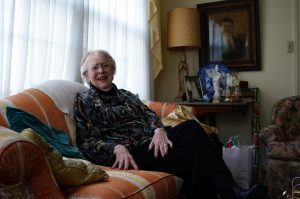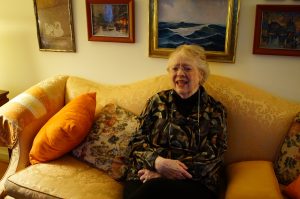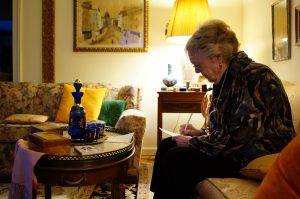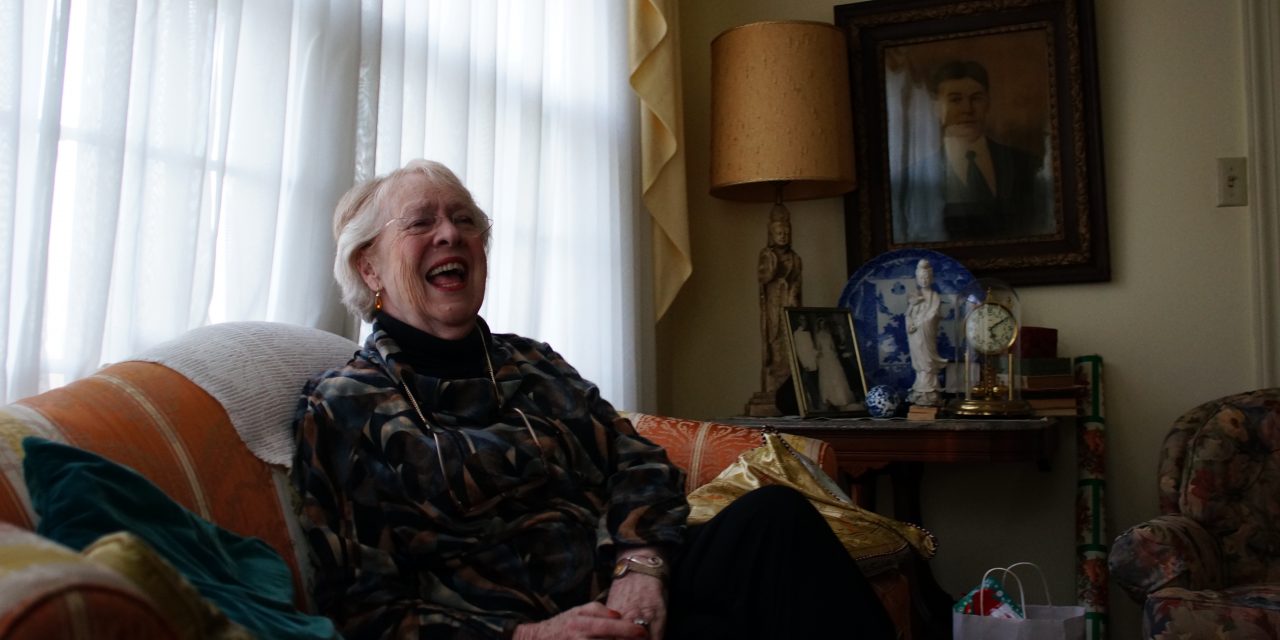This week’s Humans of Chapelboro features Dr. Bobbie Lubker, a retired professor of Education and Public Health at the University of North Carolina at Chapel Hill. Dr. Lubker has spent her life so far working in speech pathology, public health and education, and welcoming international scholars into her home.
“Even though Chapel Hill is in the South, I often find myself the only Southerner in the group. I was born in Kentucky, and then we moved to Georgia and then to Alabama. I often tell people that I did all the growing up I planned to do in Alabama. I graduated from high school and college there, and I was a teacher for a couple of years. I was pretty good at it, but I recognized that it was probably not going to be my life’s work. But interestingly enough, that was 50 years ago and I still have contact with some of my students. I email almost every week with one of them that grew up to be a colonel in the US army. He sends these really bad jokes.”
“I went to graduate school. I had a boyfriend, and it wasn’t working. So after my teaching experience one of my school principals brought a team from the University of Alabama into our school to screen the children for speech and hearing and language disorders. I said to him, you mean, people have studied this? And he said, yeah. And I said, what do you call it? He told me it was called speech therapy. So after my trouble with my boyfriend, I said to my mother the next morning, I’m going to graduate school at the University of Kentucky and I’m going Monday. And she said, okay, breakfast is ready. Later, I asked her, why didn’t you make much more of a to-do about that? She said she was afraid I’d change my mind.”

“So I went to graduate school in speech pathology at the University of Kentucky. And in the student union cafeteria, I met this really cute doctoral student in psychology. He’s the one who opened the door for you today. We lived in Virginia for 9 years, and he was then offered a position here at the University of North Carolina. Later I was offered a position teaching the introductory course to speech pathology.”
“I hope in your life you find the career that is meant for you as much as that was meant for me. A lot of young people say, I want to help people. Well, go be a telephone operator. I have made people employable that would not have been, and I have made people no longer bullied who were bullied at school. I have made people able to go on to live—I had a young man in speech therapy who had a serious cleft palette and it had never been appropriately repaired with surgery and dentistry. My team and I referred him to all the appropriate agencies, rehabilitation and everything. He worked at a shoe store, and he had been the guy at the back who put shoes in boxes on the shelves. He became a store clerk out front. He was in his early twenties.”

“I decided in my early years that if I wanted to stay in the academic community, I needed a doctorate. I decided to get a PhD in public health and epidemiology. I did that and I helped to pioneer the research of where public health and public education come together. I would go to these conferences and the health care team would be up there saying what needs to happen to children in school, and I would say, well, where is the educator on the panel? So then they started inviting educators to participate on the panel. I’m biased, but those are important ways—not just clinical ways—of helping to change the system and people’s attitudes. My doctoral students and I did the first research done on hospital schools. Duke Hospital has a school in a hospital, for teaching patients. We looked into the impact of illness on school and education. Having school in the hospital is an example of hope. UNC Hospitals have wonderful public schools in their hospitals as well. My students have done doctoral dissertations on hospital schools and the relationships between chronic illness in childhood and adolescence, and school success and failure and what that has to do with speech and language. Many children who have a language learning disability often have some other kind of disability also.”

Read part two of Dr. Lubker’s story here. Photos taken by Aleta Donald.



Beautiful biography of someone for whom I have great admiration. So sad to hear of Lynn’s passing. Love, Jean Lesesne